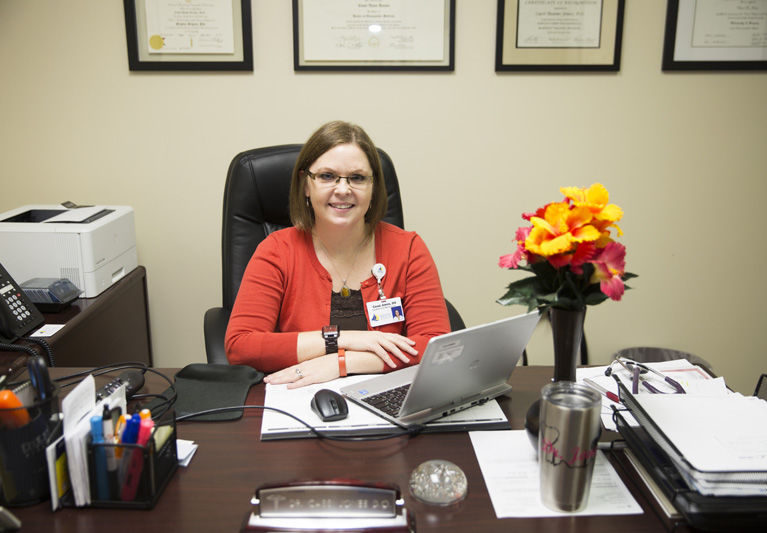
Recent research has made it clear that anemia is a serious health concern for the elderly population. The condition affects 13 percent of those age 70 and over in the United States – well over a million people.
Many in that demographic remember the old TV ads for Geritol, a liquid tonic advertised as a “remedy for those who feel tired because of iron poor blood.” The ads, of course, were referring to anemia and were wildly successful; Geritol was the top iron and vitamin supplement from the 1950s through the 1970s.
Although Geritol’s “iron poor blood” tagline is a catchy way to describe anemia, a more technically accurate definition is helpful: Anemia develops when a person’s blood does not have enough healthy red blood cells (hemoglobin) and the body’s cells don’t get enough oxygen. As a consequence, those with the condition often feel weak, tired, dizzy or irritable; they can also experience headaches, shortness of breath, cold hands and feet, and pale or yellowish skin. If untreated, anemia can force the heart to work harder, which can lead to chest pain and more serious cardiovascular problems.
In older people, anemia is often caused by an underlying condition. Cassie Jones, DO, an internal medicine physician associated with the Sebastian River Medical Center, says “some causes are fairly benign and easily treatable; others are serious and need immediate medical attention. It’s important to know the cause and to rule out the serious conditions related to anemia, such as cancer or kidney failure.”
Inflammatory disorders, such as rheumatoid arthritis and Crohn’s disease, can cause anemia; as can chronic infections and “Myelodysplastic Syndromes” – a group of disorders in which the bone marrow does not produce enough healthy blood cells. Significant weight loss or deficiencies of iron, vitamin B-12 or folic acid can also be culprits. About 30 percent of cases are “idiopathic,” meaning no cause for the anemia can be identified.
Before 1990, there was no prescription treatment for anemia itself; only the underlying condition – if one existed and was diagnosed – could be treated. That changed when the FDA approved epoetin alfa (brand names Epogen and Procrit), a man-made, injectable drug that stimulates bone marrow to produce red blood cells.
Sebastian’s Dr. Jones says that epoetin alfa was a game-changer in the treatment of anemia. “It gives us a way to help improve a patient’s quality of life without them having to endure blood transfusions, which was commonly happening before epoetin alfa was an option. But it isn’t used for all types of anemia, which it’s why essential to get to the root cause.”
According to research supported by the National Institute on Aging, older people with anemia have twice the risk of experiencing physical declines that can eventually rob them of their independence. Even mild anemia, with few noticeable symptoms, can compromise well-being.
There’s another risk associated with anemia in the older population: a higher incidence of hospitalization, with its own set of potential problems – including hospital-acquired infections, which are caused by viral, bacterial and fungal pathogens. Other things that often go hand-in-hand with a hospital stay (immobility, diagnostic testing, and changes in drug regimens) can also pose health risks.
There are ways to help stave off certain types of anemia; these tips are courtesy of the Mayo Clinic:
• Eat an iron-rich diet. Foods high in iron include beef and other meats, beans, lentils, iron-fortified cereals, dark green leafy vegetables and dried fruit.
• Focus on folic acid. This nutrient is found in fruits and fruit juices, dark green leafy vegetables, green peas, kidney beans, peanuts and enriched grain products such as bread, cereal, pasta and rice
• Vitamin B-12 is important. Foods rich in vitamin B-12 include meat, dairy products, and fortified cereal and soy products.
• Vitamin C helps increase iron absorption. Citrus fruits and juices, peppers, broccoli, tomatoes, melons and strawberries are all high in vitamin C.
• A vitamin supplement might make sense. If you’re concerned about getting enough vitamins from the food you eat, ask your doctor whether a multivitamin may be right for you.
Dr. Jones says, “Anemia can really affect your quality of life and ability to care for yourself. If you have anemia, or think you might, please work closely with your physician to determine if there is there is an underlying disease, so that you can receive the appropriate treatment.”
Dr. Jones’ practice, Sebastian River Medical Group, is located at 13480 U.S. 1 in Sebastian. The office phone is 772-581-0334.



